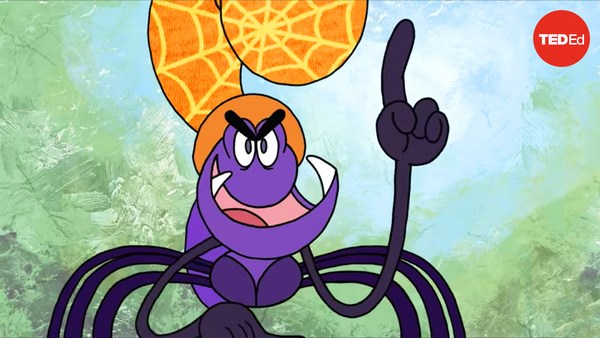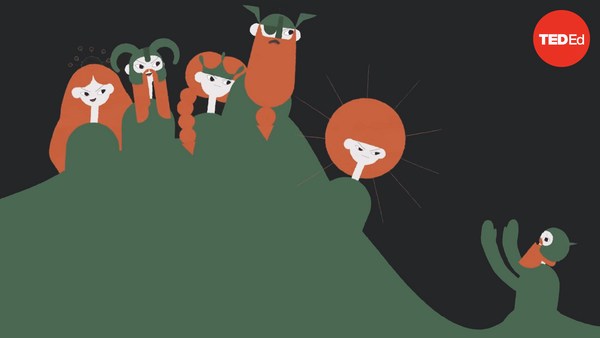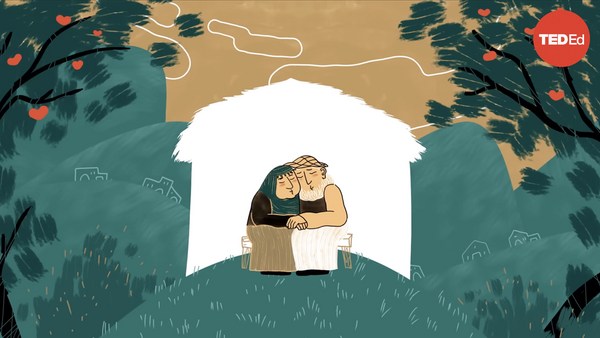Acoetes of Maeonia was in too deep. He’d been roped into serving as the navigator for a band of pirates; an unpredictable position that had him worried for his life. And now the pirates had kidnapped a sleeping youth. As they laid their victim’s body on the ship, Acoetes felt the pit in his stomach deepen even further. The pirates hadn't noticed, but their new captive was a slumbering god.
Acoetes tried to warn his shipmates, but they laughed off his concerns and set sail for the mainland. Soon, the youth awoke and demanded to be returned to his island. While Acoetes tried to oblige, his crewmates only rowed harder in the opposite direction. But with each row, the sea grew thick and muddy. Tendrils of ivy unfurled across the deck, and garlands of berries burst through the sails. Growing stronger, the youth conjured a fennel staff and a crown of grapes. With a dark thrill, Acoetes recognized Dionysus: god of wine-making, festivity— and excess.
The pirates prepared to fight, but it was too late. Their spines began to arch, their skin grew slippery, and their noses lengthened and curved. Soon, the deck was covered in a pile of frenzied dolphins. Watching his captors meet this strange fate, Acoetes didn’t know whether to laugh or cry. But with a sly wink Dionysus reassured the sailor, welcoming him to the god’s inner circle.
Back on Dionysus’ island, Acoetes discovered a new world. Every night, the god and his followers participated in dazzling rituals of drinking, debauchery, and animal sacrifice. When he awoke, Acoetes only half-remembered the revels. But his excitement for the next evening grew stronger each day. Fully in the god’s thrall, the sailor would have happily partied his life away. Dionysus, however, was ready for a change. Years earlier, he'd visited Thebes, the homeland of his mother, the princess Semele. Semele had died before Dionysus was born, leaving Zeus, the god’s father, to carry Dionysus to term in his thigh. But when the god of revelry returned to his ancestral home, he was met with scorn and derision. His mortal family refused to recognize his divine status, leading Dionysus to storm out of Thebes in a fury. Now, with his new family of worshippers, the god was ready for a grand homecoming.
The ruler of Thebes was King Pentheus, Dionysus’ cousin. Pentheus was dedicated to law and order, and had banned the worship of Dionysus. But when the god and his followers streamed into the city, people grew giddy and carefree. Even Pentheus’ aunts, and his mother Agave, couldn’t resist the festivities. Disgusted, Pentheus ordered his last remaining soldiers to capture Dionysus, only for them to return with a single tipsy worshipper. Pentheus threw Acoetes in the dungeon, vowing to stop the party himself. Yet, when he stormed out, the dungeon doors magically flew open. Buoyed by the favor of Dionysus, Acoetes giddily followed the king to the revels.
When they arrived, the party had descended into chaos. The royal women were slipping in and out of reason, overcome with pleasure and lust. Pentheus hid behind a tree, waiting for his moment to strike. But Dionysus was fully in control. He showered the royal women with more music and wine. Agave in particular was entranced by hallucinations. Suddenly, she saw a wild animal lurking in the trees. She and her shrieking sisters attacked the beast, striking its neck and pulling its limbs. Horrified, Acoetes waited for his patron to intervene and prevent the grisly murder. But Dionysus only laughed and laughed. Consumed in a debaucherous frenzy, the Theban women tore Pentheus limb from limb, and his own mother struck the final blow.
For the first time, Acoetes saw the festivities clearly. These revels weren’t an escape from fear and despair, but from reason itself. And his god was no plucky savior, but a cruel trickster who would not tolerate dissent. His new companions were even more dangerous and unpredictable than the last, and no divine intervention would save him from their taste for deadly excess.


